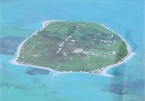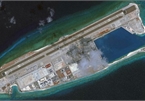Talking to the Vietnam News Agency (VNA), Derek Grossman, a senior analyst at the US-based RAND Corporation, said there is general agreement that China has been bullying its neighbours with such moves, including Vietnam, the Philippines, and Malaysia.
He believes that these acts may fuel security uncertainties in the region and even escalate tensions.
James Rogers, Director of the Global Britain Programme at the UK-based Henry Jackson Society, told VNA that China’s claim of sovereignty over almost the entire East Sea via the so-called “nine-dash line” is groundless and violates international law, especially the 1982 UN Convention on the Law of the Sea (UNCLOS).
He held that the recent sinking of a Vietnamese fishing boat by a Chinese coast guard vessel in the vicinity of the Hoang Sa (Paracel) Archipelago was dangerous and unacceptable.
China’s unlawful sovereignty claims and excessive actions in the East Sea are undermining international law and causing insecurity in the region, he noted, adding that countries that comply with international law and those that play a major role in protecting the law-based international system need to condemn such actions.
Meanwhile, the Russian news agency ANNA-News quoted experts in the country as describing China’s recent naming of geographical features in the East Sea as a breach of international law.
They said that according to the 1982 UNCLOS, states cannot claim sovereignty over an underwater object if it is not within 12 nautical miles of baselines. China’s naming of islands, reefs, and features on the seabed of the East Sea is therefore groundless and violates international law.
ANNA-News also noted that, in recent years, China’s creation of artificial islands and development of infrastructure in the waters have faced international discontent.
Russian specialists earlier condemned China’s declaration of the establishemtn of two districts within so-called “Sansha city”, saying the move runs counter to international law.
On the Times of India, journalist Rudroneel Ghosh wrote that China’s establishment of “Xisha district” (which in fact is Vietnam’s Hoang Sa Archipelago) and “Nansha district” (which is Vietnam’s Truong Sa (Spratly) Archipelago) within so-called “Sansha city” is a unilateral move and undermines regional stability.
On April 19, Ministry of Foreign Affairs spokeswoman Le Thi Thu Hang stated that: “Vietnam has strongly affirmed many times that it has sufficient historical evidence and legal foundation testifying to its sovereignty over the Hoang Sa and Truong Sa Archipelagos.”
She highlighted Vietnam’s consistent viewpoint that it strongly objects to the establishment of so-called “Sansha city” and related actions, as they have seriously violated Vietnam’s sovereignty, been valueless, unrecognised, and not beneficial to friendship among countries, and have complicated the situation in the East Sea, the region, and the world.
“Vietnam demands that China respect Vietnam’s sovereignty, abolish wrongful decisions made relating to these moves, and not commit similar acts in the future,” the spokesperson added./.VNA

Da Nang condemns China’s establishment on Paracel and Spratly archipelagos
The people’s committee of the Hoang Sa (Paracel) Islands district in Danang strongly protested China’s decision to establish the so-called Xisha and Nansha districts to govern over Vietnam’s Hoang Sa (Paracel) and Truong Sa (Spratly) islands.

China's action condemned as "provocative", "illegal"
Analyst Carl Thayer Carl Thayer , an Emeritus Professor at the University of New South Wales has called latest China's action in the East Sea "provocative," "illegal" and has no basis under international law.
 Foreign experts have condemned China’s recent actions in the East Sea, saying its moves have escalated tensions in the region and infringed upon international law." itemprop="description" />
Foreign experts have condemned China’s recent actions in the East Sea, saying its moves have escalated tensions in the region and infringed upon international law." itemprop="description" />